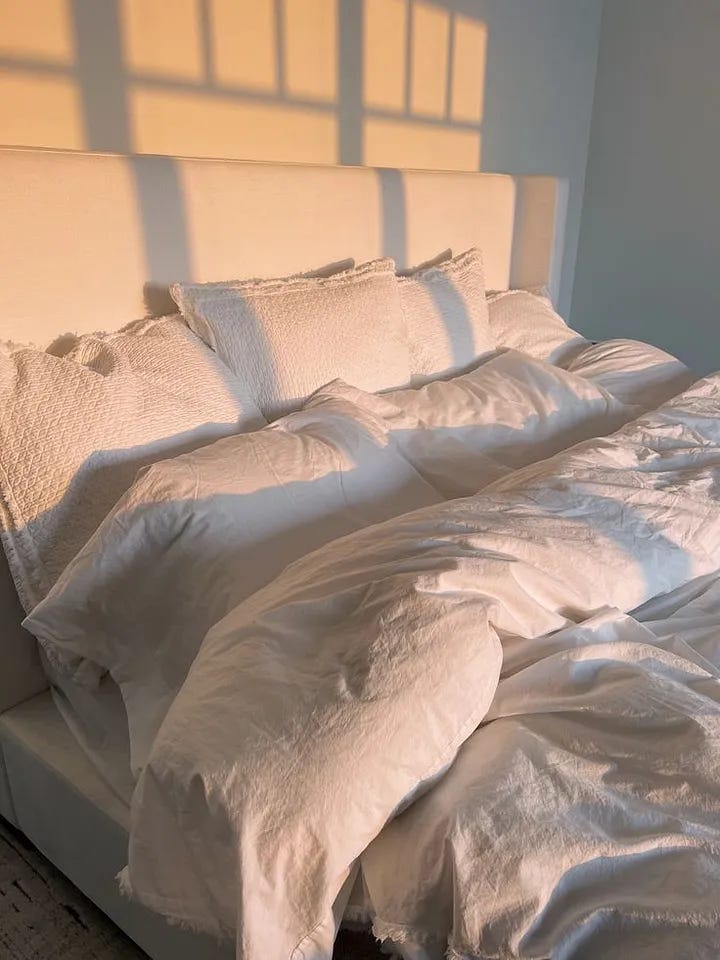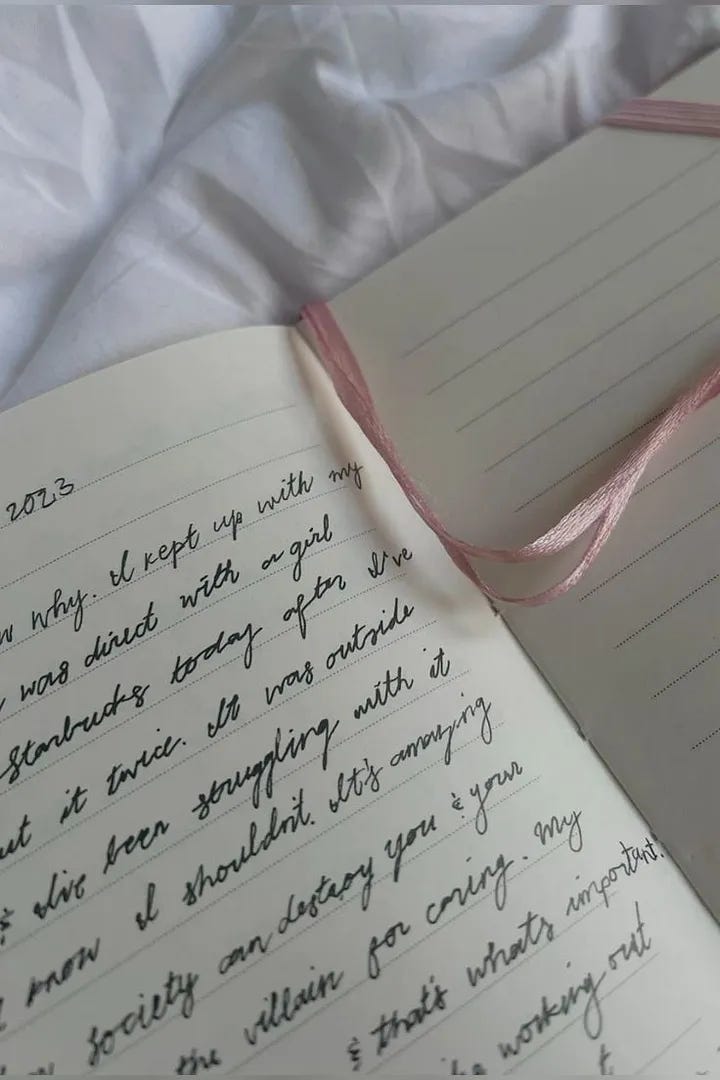Defining Mental Hygiene
What is Mental Hygiene?
Just like physical hygiene keeps your body clean & healthy, mental hygiene is essential for a clear, balanced and resilient mind.
Mental hygiene refers to the practices and habits that promote emotional, psychological, and cognitive well-being.
Strong mental hygiene helps: prevent mental distress, reduce the risk of anxiety and depression, regulate emotions, foster positive thought patterns, and enhance overall resilience.
Mental hygiene is not about becoming a monk and meditating for hours - it’s about taking a few minutes to yourself each day to check-in and reset.
Keep reading for 10 mental hygiene practices that can be done in 5 minutes or less.
Why Practice Mental Hygiene?
Think of all you consume in a single day: work emails, texts from friends, news articles, crime podcasts, your own thoughts and feelings, as well as thoughts and feelings of others.
Mental hygiene is the process of taking inventory of the thoughts in your mind and clearing any lingering heaviness or clutter.
It’s especially important to clear thoughts and feelings that don’t belong to you & stress from things you can’t control - like a news story that made you feel stress, a friend’s problems that made you feel worried, a hurricane affecting another part of the world, etc.
When thoughts and feelings pile up (especially those that are not our own), we feel restless, anxious, upset, and we’re not sure why. This creates an overall sense of stress, overwhelm, and anxiety, and may paralyze us from taking meaningful action.
It’s not selfish to take care of yourself - in fact, our best actions to help and support ourselves & those we care about come from a calm and centered place, not a stressed and overwhelmed place.
This is the goal of mental hygiene.
A Real Life Example: Mental Hygiene In Action
For example, you’re having a great day, until you receive news that a friend got fired from their job.
You feel stressed and worried about your friend.
You can’t focus.
Your body feels tense and restless.
Your mind feels foggy.
You get a headache. You can’t shake the feeling.
You even lose sleep that night.
It carries over into the next day.
More stressful events transpire. Build up occurs.
Instead, imagine a world where you receive news that your friend got fired and:
You take a few deep breaths and finish your work tasks, reminding yourself all will be ok.
When you’ve wrapped up work, you take 5 minutes to brainstorm how you can help: food & a few connections come to mind.
That evening you drop off dinner & connect her with three people you know who may be hiring.
When you get home, you take a shower & say a few affirmations to release any lingering worry.
You sleep peacefully that night, knowing you did what you could to help, while also taking care of yourself.
This is mental hygiene in action.
Below I’ll share 10 ways you can realistically practice in your daily life.




10 simple, but powerful ways to practice strong mental hygiene
1. Brain Dump
Brain dumping is a proven way to manage mental health. When your mind feels overloaded, grab a notebook and write everything down without judgment — your thoughts, worries, to-do lists, frustrations. Your writing doesn’t need to be artistic or even make sense - you never have to read these pages again. The purpose is release any negative thoughts onto the page and make space for new, more positive thoughts.
2. Try Breathwork
As many as 80% of Americans experience email apnea - or involuntary breath holding/shallow breathing while looking at screens. Conscious breathing is a proven way to calm the nervous system and lower stress. You can do this on the train, at your desk, or before meals. Pause for 1-2 minutes, breath deeply, and feel your stomach rise and fall. I do this several times a day as a mini-reset. If you’re looking for a guided practice, you can download my app.
3. Take a Walk
Movement is medicine for the mind. Walking, especially in nature, can improve mood, boost creativity, and lower stress hormones. Even a 10-minute stroll can help clear your head and improve mental clarity.
4. Practice Mindfulness
Mindfulness is a proven way to reduce anxiety and increases overall emotional balance. Practicing mindfulness is easy and can be done anywhere. Take 2 minutes to tune into your 5 senses: what do you see, hear, taste, feel, and smell right now in this moment? Name as many things as you can count in two minutes.
5. Three Minute Vent
Set a timer for three minutes and vent—write it down, talk to yourself, or tell a trusted friend. Get it all out of your system and then let it go.
If you’re venting a friend, be sure to ask permission first! A simple “hey can I vent to you for 3 minutes?” is a great way to confirm they have mental space for the conversation.




6. Take a Mindful Shower
A shower isn’t just about hygiene—it’s a reset for your mind. Warm water can relax tense muscles and reduce cortisol. Engage your senses even further by slowing down, listening to the water hit the shower floor, feeling your hands massage your scalp, smelling your soap, etc. Make this a luxurious moment for you.
7. Tapping (Emotional Freedom Technique, EFT)
Tapping (EFT) is the practice of reframing your thoughts while tapping specific acupressure points. I was skeptical of this tool, until I tried it and I’m hooked. If you have 7 minutes are looking for a free guided tapping video, try this. Tapping has tons of clinical evidence to reduce stress & anxiety:
Tapping reduces Stress Hormones
A 2012 study published in The Journal of Nervous and Mental Disease found that EFT significantly reduced cortisol (the stress hormone) levels by up to 24%, compared to traditional talk therapy and rest.
Tapping reduces Anxiety and PTSD
A meta-analysis (Craig et al., 2020) reviewed multiple studies and concluded that EFT is highly effective in reducing anxiety and has comparable results to cognitive behavioral therapy (CBT).
8. Repeat An Affirmation 10 Times
80% of your thoughts are negative and repetitive in nature. The best way to counteract those thoughts is to: 1) Fact check your thoughts - is it really true that everyone is mad at you? 2) Counter-act negative thoughts by intentionally repeating meaningful positive statements. Here’s how:
Choose 1 negative thought - start with one you think the most often
(for example: I am not smart enough)
Look for proof of the opposite, also known as proof of the truth
(for example: I am smart enough, I received a glowing recommendation from my professor, my manager put me up for a promotion, my client loved my presentation)
Flip your statement
(for example: I am not smart enough → I am smart and capable)
Anytime you hear the negative thought, repeat your new positive statement 10 times.
9. Do a Selfless Act
David Foster Wallace argues that focus on the self is the source of suffering. Practice a self-less activity to shift your focus from yourself to others. Donate, volunteer, compliment a peer, buy coffee or dinner for a friend, drop off a birthday gift or card for your aunt. Small acts of kindness can have a big impact on mental well-being.
10. Limit Social Media
Overstimulation can manifest as anxiety or inflammation in the body. Doomscrolling leads to clutter, information overload, comparison, and mixed messages in the mind. Read this if you need help moderating or deleting social media.
Next Steps
Mental hygiene isn’t about perfection—it’s about small, consistent habits that create a healthier, more balanced mind.
I don’t recommend attempting all of these practices in one day.
Instead, choose a few favorites and try them on.
For example, you might choose to say 10 affirmations and limit social media for one week. For that week, say your affirmations morning, noon, and night, and turn your phone on do not disturb after dinner.
Try it and take note of any differences you feel. Let me know how it goes in the comments!
Remember: You can add in, remove, or edit practices as you go.
This process is about what works for you!
You are the expert in your mind and body - always do what makes you feel good.
Love always,
Jessie





Jessie, this is exactly what my doom-scrolling brain needed! 🙏
I've been practicing your brain dump technique all week (my notebook looks like a crime scene of tangled thoughts 😅) and it's already helping me sleep better.
I love how you framed mental hygiene as clearing thoughts that 'don't belong to you' - never realized how much mental real estate I've been giving to things I can't control! The 3-minute vent is next on my list.
Thank you for these practical mindfulness nuggets! They're gold.
I like this very much. The David Foster Wallace quote gives me pause tho! He was a great writer, but a tortured soul who ended his own life. I’m reticent to take mental health advice from him.